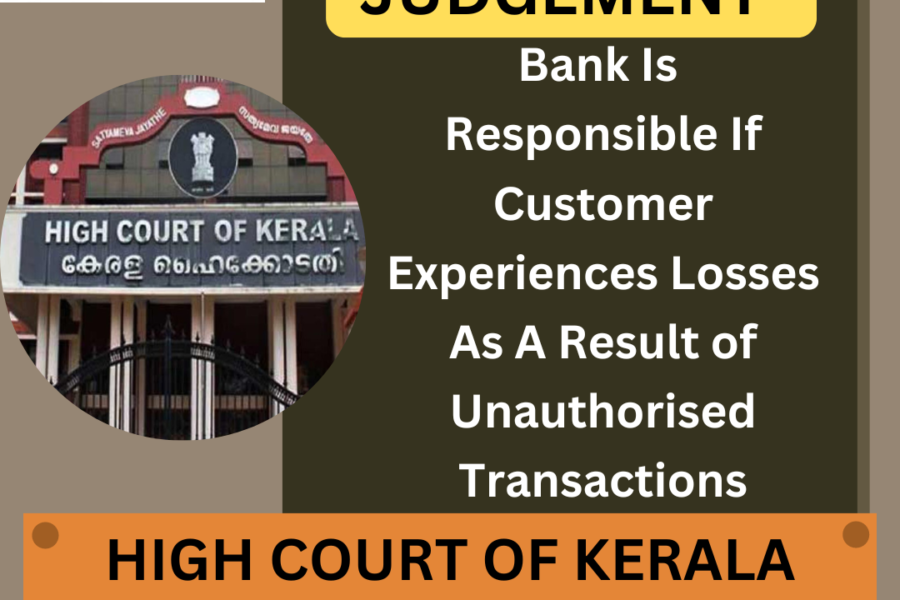Salim PM v M/s State Bank of India
Case Number: C.C. No. 413/ 2019.
A Kerala consumer court ruled that a bank is accountable for any losses incurred by a client as a result of unapproved withdrawals from their account.
The District Consumer Disputes Redressal Commission in Ernakulam noted this while ordering the State Bank of India (SBI) to reimburse a client for an illegal withdrawal of funds from his bank account.
Additionally, the Court dismissed SBI’s argument that, since Salim, the client, had received SMS notifications informing him of the withdrawal, there was no unfair trade practice or service defect on the bank’s part.
“In the instant case the complainant is not duty bound to read all the messages and some among them have been received in the odd hours of the night by the complainant,” said the judgement.
Additionally, the RBI has launched the Ombudsman Scheme for Digital Transactions, 2019, which is specifically designed to address grievances about digital transactions that customers have completed through system participants. According to the scheme’s definition, system participants are organisations or platforms—aside from banks—that facilitate transactions using credit and debit cards, money transfers, and other comparable activities. With effect from January 31, 2019, the programme was implemented per Section 18 of the Payment and Settlement Systems Act, 2007.
Case Summary:
A complaint filed in the aforementioned case by Salim PM, who lost ₹ 1.6 lakh as a result of fraudulent money withdrawals from his bank account in 2019, was being heard by the court.
An earlier order from the banking ombudsman required the State Bank of India to reimburse Salim for his loss in the sum of ₹80,000. His account was also credited with an additional ₹10,000.
Salim therefore goes before the consumer court to get the remaining ₹70,000 that he lost paid to him.
A bench comprising V Ramachandran, Sreevidhia TN, President of the District Consumer Forum DB Binu, and members granted the claim up to ₹ 85,000 (₹70,000 for the loss, ₹10,000 as compensation, and ₹5,000 for litigation costs).
The Court found in its orders that the bank owed it to the customer to take reasonable precautions to protect their interests because it was offering a service. This involves having an obligation to take action to stop unlawful withdrawals from clients’ bank accounts.
Salim said in the lawsuit that he lost ₹1.6 lakh as a result of three separate illegal withdrawals from his bank account.
Salim also stated that he was startled to discover that there was just ₹ 3,011 left in the ATM when he attempted to take out money. He stated that his bank account had ₹ 1.6 lakhs stolen from it.
On July 29, the consumer forum issued its decision in the matter, directing SBI to pay an additional ₹85,000 to the ₹90,000 that had been paid following the previous banking ombudsman finding.


Trustworthy and reliable, every single visit.
can you get generic lisinopril without dr prescription
I’m grateful for their around-the-clock service.